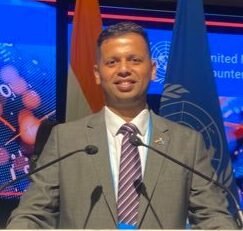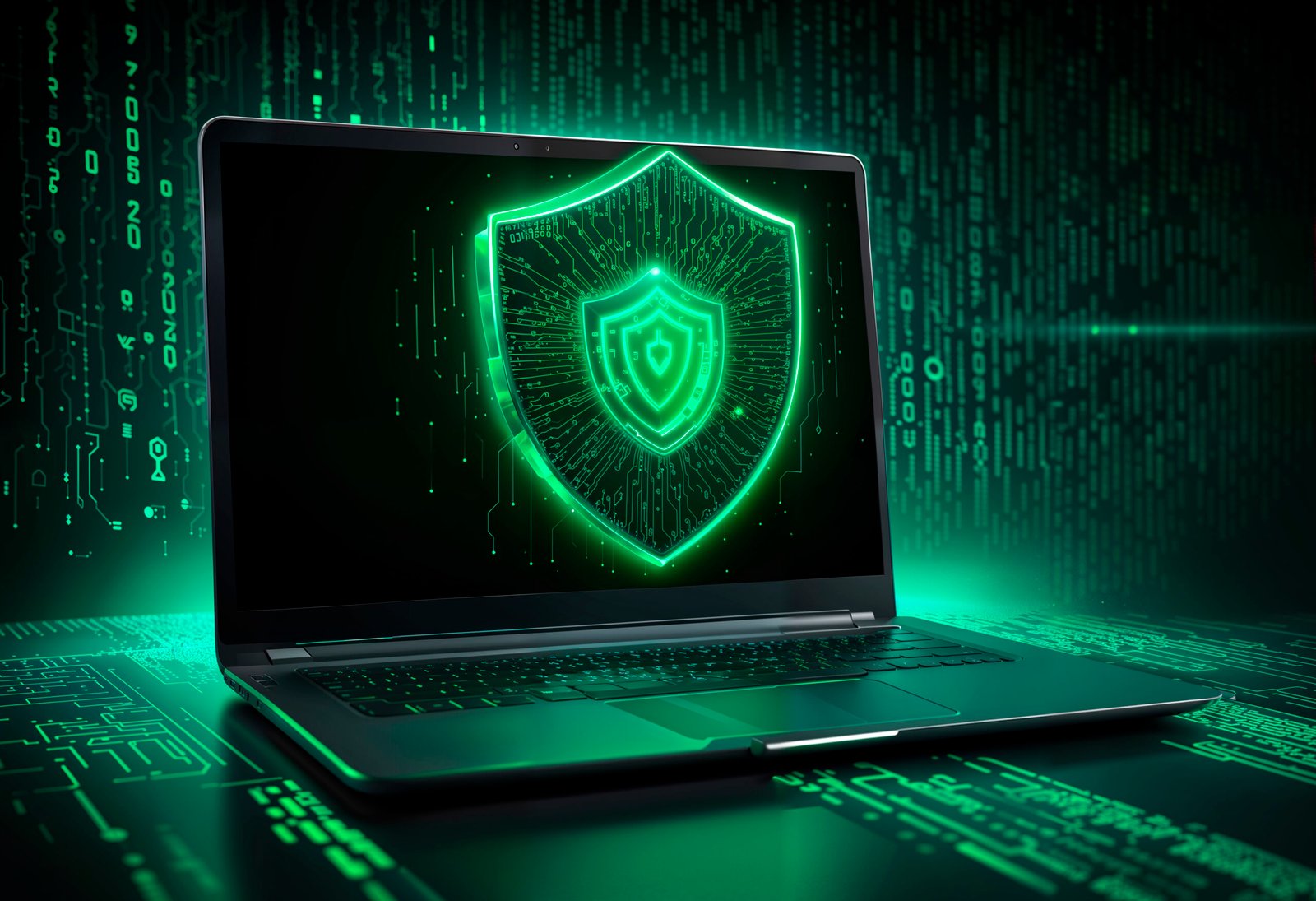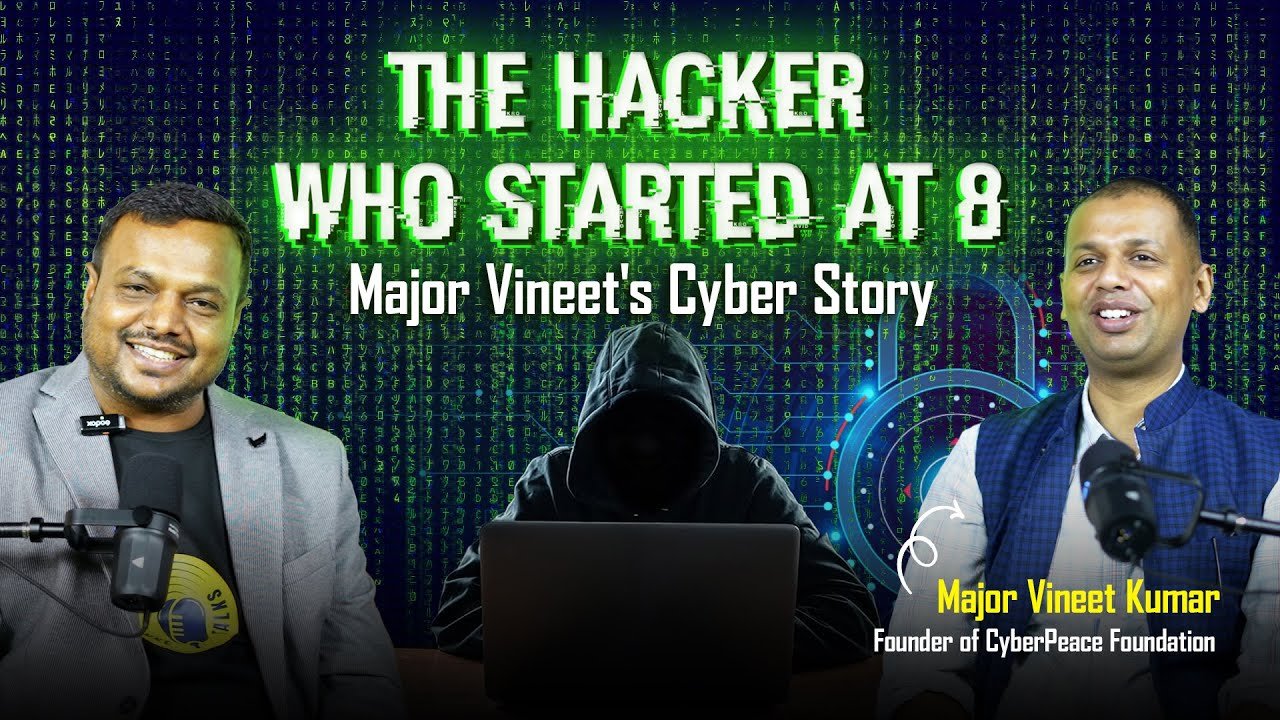When we think of national security, images of camouflage, guns, and soldiers on borders come to mind. But in today’s digital age, wars are fought in silence, with keyboards and codes. In that battlefield, Major Vineet Kumar stands tall—not just as a soldier in uniform, but as a cybersecurity crusader, educator, and visionary leader.
This is not the story of an overnight hero. It is a chronicle of a boy from Ranchi who explored the internet before most Indians knew it existed, who learned hacking from black hats but used it to guard the nation’s cyber borders, and who became a bridge between cyber and soldier—blending passion with patriotism.

The Genesis: An 8-Year-Old and a Dial-Up Connection
Born in Ranchi, Vineet Kumar’s journey started at just eight years old, long before cybersecurity was a buzzword. His early curiosity sparked in the HEC (Heavy Engineering Corporation) colony, where his father’s interest in modernization introduced him to the internet when it first trickled into India via dial-up.
While most children collected comics or played outdoors, young Vineet was in cyber cafés, saving pocket money to buy internet time. His passion led him into IRC (Internet Relay Chat) hacker groups where he learned not from teachers—but from real hackers. “I learned cybersecurity from the bad guys,” he admits, with chilling honesty.
From Black Hat Lessons to White Hat Vision
What could’ve easily turned into a life of cybercrime instead became a mission. Vineet saw hacking as a tool—much like a thief teaches a cop how the system can be breached. By understanding the methods of cybercriminals, he turned the knowledge toward defending, not exploiting.
He formed the National Anti-Hacking Group in 2000—when India barely understood the internet, let alone digital threats. In 2003, he formally registered the organization in Jharkhand, gathering ethical hackers and cybersecurity enthusiasts under one mission: Cyber Peace.
Rebel with a Cause: The Struggle for Acceptance
Not everyone saw his work as heroic. In conservative regions like Bihar and Jharkhand, where careers meant “doctor, engineer, or IAS,” Vineet’s work raised eyebrows. His own relatives feared he was going astray. A lone child hacking computers? Suspicion was inevitable.
But while society questioned, the media saw brilliance. The Times of India, Hindustan Times, and The Telegraph wrote about him. At just 17, he was featured on the cover of Digit magazine under the title “The Protectors of the Nation.”
Recognition snowballed. He lectured at AIIMS, IITs, CME Pune, and caught the attention of India’s intelligence elite, including the IB, RAW, and NSA.
A Teenager Walks Into the Home Ministry
In 2007, while still in school, Vineet was invited to the Ministry of Home Affairs, thanks to a cybersecurity demonstration that startled India’s top security officials. He live-hacked a major telecom company, a sensitive installation, and a bank to prove a point—not to brag, but to warn.
He didn’t know it then, but that five-minute demo would launch him into national service.
Building Jharkhand’s Cyber Defence Dream
Despite opportunities to move to bigger cities, Vineet chose to stay in Jharkhand. “If people talk about Israel when they think cybersecurity, I want them to talk about Jharkhand,” he declared.
With support from DGP VD Ram and senior bureaucrats, he founded the Cyber Defence Research Centre (CDRC) in 2012. This wasn’t just a symbolic unit—it was designed to preempt threats, conduct research, and support police investigations with cyber intelligence.
From a boy mocked for “running a shop,” Vineet became the Chief Technology Officer of the State’s Cyber Cell.
Global Recognition: Awards, Scholarships & Leadership
His work soon caught international attention. He was awarded the UN Young Achiever Award (2008) and became the only Indian finalist in the Global Student Entrepreneur Awards (2010). Later, the National Youth Award from the President of India confirmed his growing stature.
International fellowships followed: the Chevening Scholarship (UK), IVLP Program (USA), and British Council Future Leaders Programme, taking him to MIT, Pentagon, and Cambridge.

The Soldier’s Soul: Donning the Army Uniform
Despite his booming career, Vineet longed for uniformed service. Though initially selected for the Indian Army, he had to defer due to overseas studies. But fate circled back—he joined the Territorial Army in 2014, becoming a rare cyber expert who also led in infantry roles.
He served in the Kumaon Regiment and later transferred to the Sikh Regiment. From glacial posts to urban operations, he balanced field duty with cyber peace initiatives.
Fighting the New Monster: Digital Slavery
In recent years, Vineet’s focus shifted to a horrifying trend: Cyber Slavery. Thousands of Indians are being lured to Southeast Asian nations like Cambodia with fake job offers. Once abroad, they are imprisoned, beaten, and forced into cyber scams—sextortion, phishing, digital arrest threats.
“These people are working 20 hours a day, making fake scam calls, and being tortured if they fail,” he says gravely. “This is not just fraud—it’s modern digital slavery.”
He’s raising alarms across ministries and international platforms, seeking stronger cross-border regulation and victim rehabilitation.
Vision for Jamtara: From Scamland to Cyber Hub
No story about cybercrime in India is complete without Jamtara. Once infamous for online scams, Vineet wants to transform it into a beacon of cybersecurity.
His proposal? A Rehabilitation Centre for youth involved in cybercrime.
“These aren’t hardened criminals. They’re misguided, talented boys. With the right mentors, skills, and environment, they can become India’s next cyber defenders.”
Vineet’s Cyber Peace Foundation is ready to lead the initiative. It has support from the police, government, and CSR arms of companies like Tata, SAIL, and CCL.
Cyber Peace Foundation: India’s Digital Shield
What began in 1997 as a hacker group is now a global organization. Today, it has offices in Delhi, Ranchi, Kenya, the US, and Nigeria. The Cyber Peace Foundation (CPF) runs campaigns with:
- Ministry of Education (e-Raksha)
- Ministry of Home Affairs
- National Critical Information Infrastructure Protection Centre (NCIIPC)
From training police in digital forensics to educating senior citizens on cyber fraud, CPF is shaping digital literacy and resilience.
The Fire in the Belly: A Lesson in Grit
Vineet remembers his toughest days—empty pockets, rejected proposals, and skepticism from all sides. Yet, he continued.
“At one conference, I was hosted in a five-star hotel with a BMW picking me up,” he recalls. “But I had only ₹50 in my wallet. I was scared I couldn’t pay for coffee if asked.”
That moment didn’t break him. It burned his resolve.
A Message for Jharkhand at 25: Reclaim the Cyber Crown
Jharkhand is turning 25. But Vineet believes the state’s journey in technology stalled after a promising start.
“We built India’s first state data center. We led in cyber policing. But where is that momentum now?” he asks.
His dream? To revive the Cyber Defence Research Centre and make Jharkhand a hub for AI, quantum computing, and cybersecurity startups. He also aims to attract global investment—while empowering local youth.
Final Words: Create. Don’t Wait.
To every dreamer in small towns, Vineet says:
“You don’t need to leave Ranchi to be global. All you need is high-speed internet and high-speed intent.”
Build. Lead. Believe.
From a hacker to a soldier. From a suspect to a savior.
Major Vineet Kumar didn’t wait for change. He created it.

No responses yet